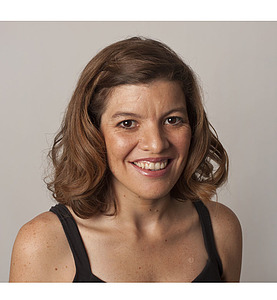Anita Carrasco

About
Education: Ph.D., Cultural Anthropology, University of Arizona; M.A., Cultural Applied Anthropology, University of Arizona; B.A., Anthropology, Universidad Academia de Humanismo Cristiano
- Introduction to Cultural Anthropology
- Culture of Capitalism
- Environmental Anthropology
- Global Consumer Culture
- Writing Culture: Ethnography
- Anthropological Theory
- Ph.D., Cultural Anthropology, University of Arizona
Dissertation: “One World, Many Ethics. The Politics of Mining and Indigenous Peoples in Atacama” - M.A., Cultural Applied Anthropology, University of Arizona
Thesis: “Likantatay: Portable Landscape of an Urban Indigenous Community.” - B.A., Anthropology, Universidad Academia de Humanismo Cristiano, Santaigo, Chile
Thesis: “El sistema de mandas en dos fiestas religiosas: San Lorenzo de Tarapacá y San Sebastían de Yumbel.”
My research centers on the impacts of mining on the environment and indigenous peoples livelihoods and culture. My first project explored the clash of two cultures of water: that of corporations and that of indigenous peoples of the Andes in northern Chile. Drawing on Kopytoff’s idea of ‘the biography of things’ I was able to examine an important issue faced by Atacameño indigenous people: the commoditization of water.
In my new project I am studying changing perceptions of mining company-indigenous community relations in northern Chile. During fieldwork I heard stories from several elder villagers about an American engineer from Anaconda, a very kind “gringo” in their own words, that unlike other white people, remembered their names, asked them about their lives, and loved to take pictures.
In my investigations, I found that one of the company’s chief engineers in charge of exploring for water for mining operations, William E. Rudolph, extensively photographed the neighboring indigenous peoples’ environment and villages, wrote several survey reports exploring water and had written several papers for the American Geographical Society Review.
I am exploring how American presence via Anaconda shaped the perceptions and expectations about mining expressed in the social memory of indigenous peoples in Atacama. Thus far, their stories reveal a contrast between their perception of a past when mining was human and generous by providing jobs to the natives and a present where they see mining as greedy and unfair only offering employment to formally educated and trained individuals that most natives can not compete with.
Keywords
- Corporations and Moral Identity
- Extractive Industry
- Corporate Social Responsibility
- Andes
- Water
2016. Carrasco, Anita. “A Biography of Water in Atacama, Chile: Two Indigenous Community’s Responses to Mining Extractive Encroachments” Journal of Latin American and Caribbean Anthropology [In Press].
2015. Carrasco, Anita. “Jobs and Kindness: William E. Rudolph’s Role in the Shaping of Perceptions of Mining-Community Relations in the Atacama, Chile”. The Extractive Industry & Society (2): 352-359.
2014. Carrasco, Anita. “Entre dos aguas: identidad moral en la relación entre corporaciones mineras y comunidades indígenas en el desierto de Atacama” Chungara, 46 (2): 246-258.
2010. Carrasco, Anita. “A Sacred Mountain and the art of “Impression Management”: Analyzing a mining company’s encounter with indigenous communities in Atacama, Chile.” Mountain Research and Development, 30 (4): 391-397.
2010. Carrasco, Anita and Eduardo Fernández. “Estrategias de resistencia indígena frente al desarrollo minero. La comunidad indígena de Likantatay ante la eventualidad de un traslado forzoso”. Estudios Atacameños, (38): 75-92.